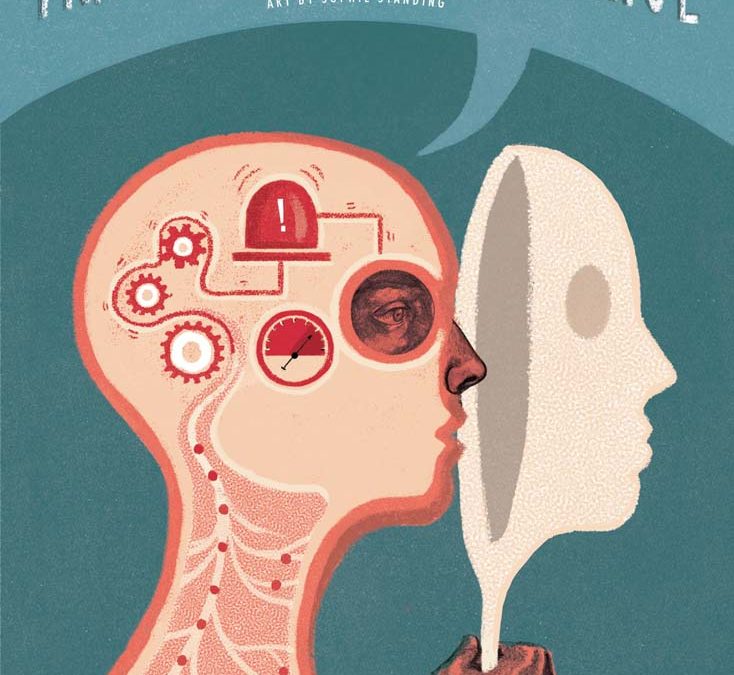The understanding of trauma is fundamental to health.
We’re all hardwired to respond to overwhelming experiences in the same way. We contract away from danger, we run, jump fight or shutdown.
The control mechanisms (nervous, hormonal and immune) take us immediately into states of being mobilised (‘fight-or-flight’) or immobilised (‘freeze’).
The good news is that we evolved to respond quickly to trauma and have the innate ability to process and overcome trauma. We would not have survived as a species if this were not the case.
Connecting to the body is essential to support safe, contained processing of traumatic experiences.
Some simple questions can help you identify that your body might be working harder than you realise to try and protect you:
One: Do I get cold hands or feet? This is a common sign of a’fight-or-flight’ being turned on; we divert blood away from the periphery towards the big muscles when activated.
Two: Am I sensitive to bright lights or loud noises? This is another sign of ‘fight-or-flight’, the pupils get bigger and the ears more sensitive in the stress response.
Three: Do I bump into things? Or am I clumsy? We lose spatial awareness when dissociated and in the ‘freeze’ aspect of the stress response.
Four: Do I have a sense of being detached, dreamy, or having my head in the clouds? Feeling detached and dreamy can be a form of dissociation. Dissociation is part of the body’s response to overwhelming stress.
If you notice these things happening to you, it’s good to practice finding places of health in your body. We have lots of health within us. Try to find things that make you feel good in your body, thoughts or ideas that make you feel more alive, people, food, places can also make this connection to health. These are health resources. Sit for a while and think about what objects make this connection for you in your life.
Over time, as you practice, you will build up a library of things that help you feel safe. Some core, reliable sensations will emerge that you can remember and be with even in the darkest of times.
In my book, ‘Trauma Is Really Strange’ I explore what trauma is, how it changes the way our brains work, and how can we overcome it and feel more connected.


